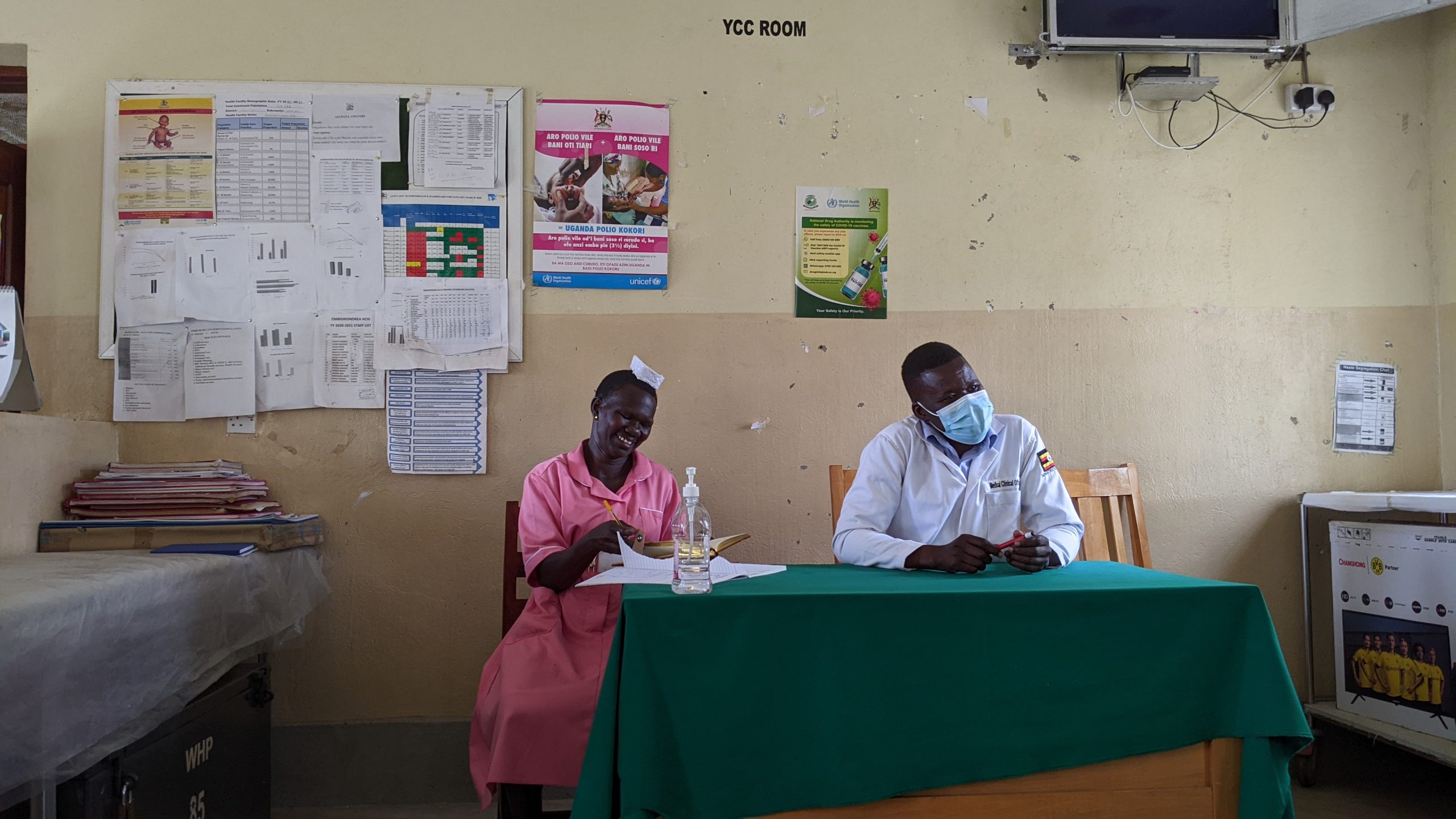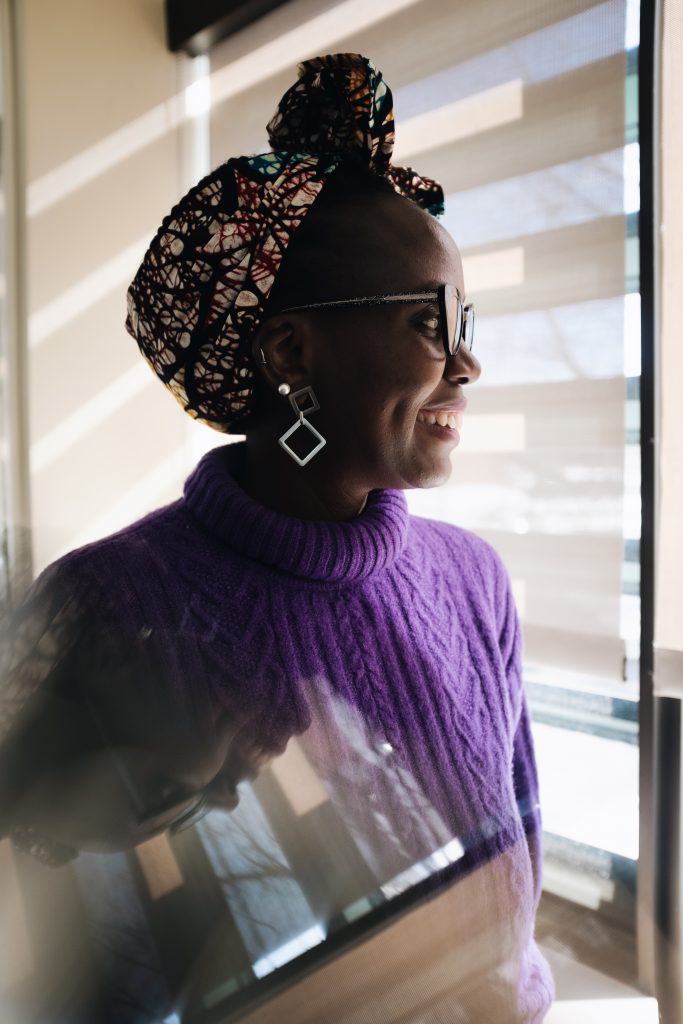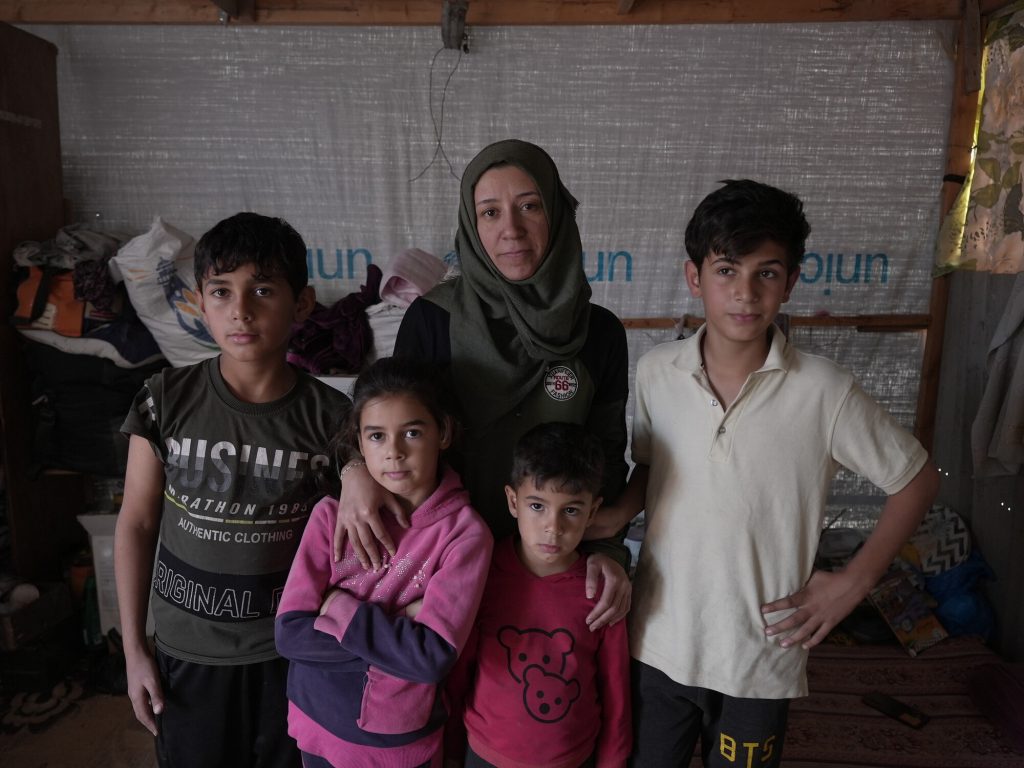Penelope Sanyu on Nurturing Feminist Power
"My name is Sanyu, and Sanyu means joy. I keep telling people it wasn’t a mistake," chuckles Penelope Sanyu.
As I meet Penelope, I am struck by her radiant smile and contagious laugh – it's easy to understand why she feels this way about her name. She is the founder and CEO of Femme Forte Uganda (not a fan of titles, she doesn't even like to say 'manage,' instead she humbly says "I steward them"), one of nine national partners in the Global Affairs-funded, Oxfam Canada-implemented Stand Up for SRHR project in Uganda, Mozambique, and Canada.
Femme Forte is working with vulnerable and diverse adolescent girls and young women in Uganda to raise their awareness of and demand for quality, rights-based sexual and reproductive health.
Penelope wears many hats – lawyer, activist, published writer, and YouTuber. But more than anything, she is a convener.
"The desire and the need were very high for a space that is safe enough, that will hold our tears, that will hold our discomforts, that will hold our pain, and also that will hold our joys and celebration in a way that is non-judgmental," she recalls about the founding of the now five-year-old organization, "and that is how Femme Forte came to life."
This year, in honour of International Women's Day, we are celebrating the power of feminist movements – a movement which Penelope proudly leads with a nurturing love.
SRHR Saves Lives
Young women and adolescent girls in Uganda face persistent challenges ranging from inequitable gender and social norms, as well as traditional practices and taboos regarding their sexuality that negatively impact their health and status.
"I think that one of the biggest struggles in Uganda healthcare [is that] most people don't have medical insurance, most people do not have access to SRHR services," explains Penelope.
These barriers translate into low use of contraceptives, high unmet needs for family planning, and high rates of teen pregnancy. Maternal mortality is prevalent, and unsafe abortion is a leading cause of hospitalization and maternal death in the project’s targeted communities. Through the work of the Stand Up for SRHR project and its partners, solutions are being found and implemented to provide SRHR services.

But what is sexual health without its rights?
"We need to marry the entire spectrum of sexually reproductive health and rights and advocate for both at the same level – because without the rights there is no health, and without the health there are no rights," she insisted. But Penelope clarifies that she is not advocating for sex but rather, she is fighting against the traditional abstinence narrative rooted in fear, and pushing for access to comprehensive information and services.
"It's always from a place of threat rather than a place of love," said Penelope.

Activism as a Labour of Love
I sense a theme emerging from our meeting as our conversation quickly turns to the notions of love, sisterhood and the role nurturing plays. For Penelope, to nurture sisterhood is to nurture feminist power. With this in mind, she reflects on the founding of Femme Forte, which she compares to birthing a child.
Was labour difficult? I ask.
"Labour is always difficult!" she laughs with an all too knowing smile. From the thrill of a baby's first steps to the growing pains of the teenage years, it's been a journey for Penelope and Femme Forte.
So, what keeps her going?
"For me, it’s not just work. It's an honour to serve. It's an honour to serve women."
She shares a story of how in Uganda, women traditionally wear or carry a leso, a rectangle piece of cloth. This is in case she needs to quickly go into labour before she can access a health facility – a common occurrence in rural areas where the nearest hospital may be hours away. If that happens, women will gather and build an impromptu private shelter out of their lesos, enabling the mother to deliver her baby with dignity and privacy.
"That's covering," says Penelope. "We will hold you. Whether I know you or I do not know you, we are covering you."
In a way, Femme Forte acts as a leso, a safe space, for women to nurture their sisterhood and for women to advocate for their rights. But it isn’t always easy to nurture feminist power. "Nurturing is complicated," explains Penelope, "it takes a certain level of patience, of grace, of questioning."
As any sister may attest, it also takes some days of not talking to each other, of fighting, of being angry, of sulking.
Penelope's years of wisdom comes through when she says, "but it’s also about knowing that I can come back, look you in the eye and say, I love you."
Caroline Leal is a communications officer at Oxfam Canada.

